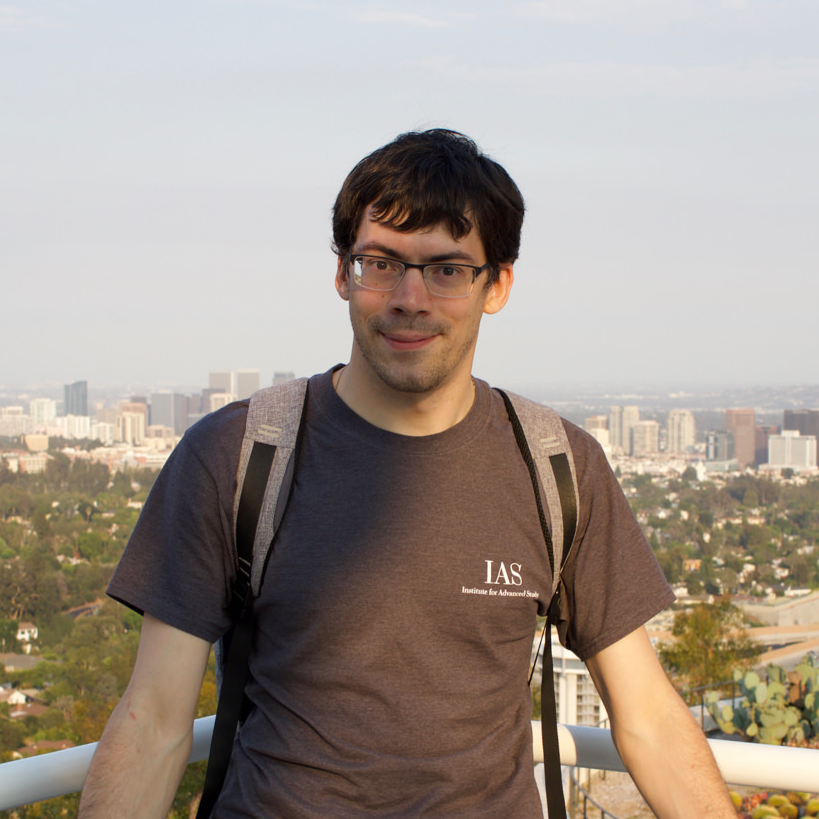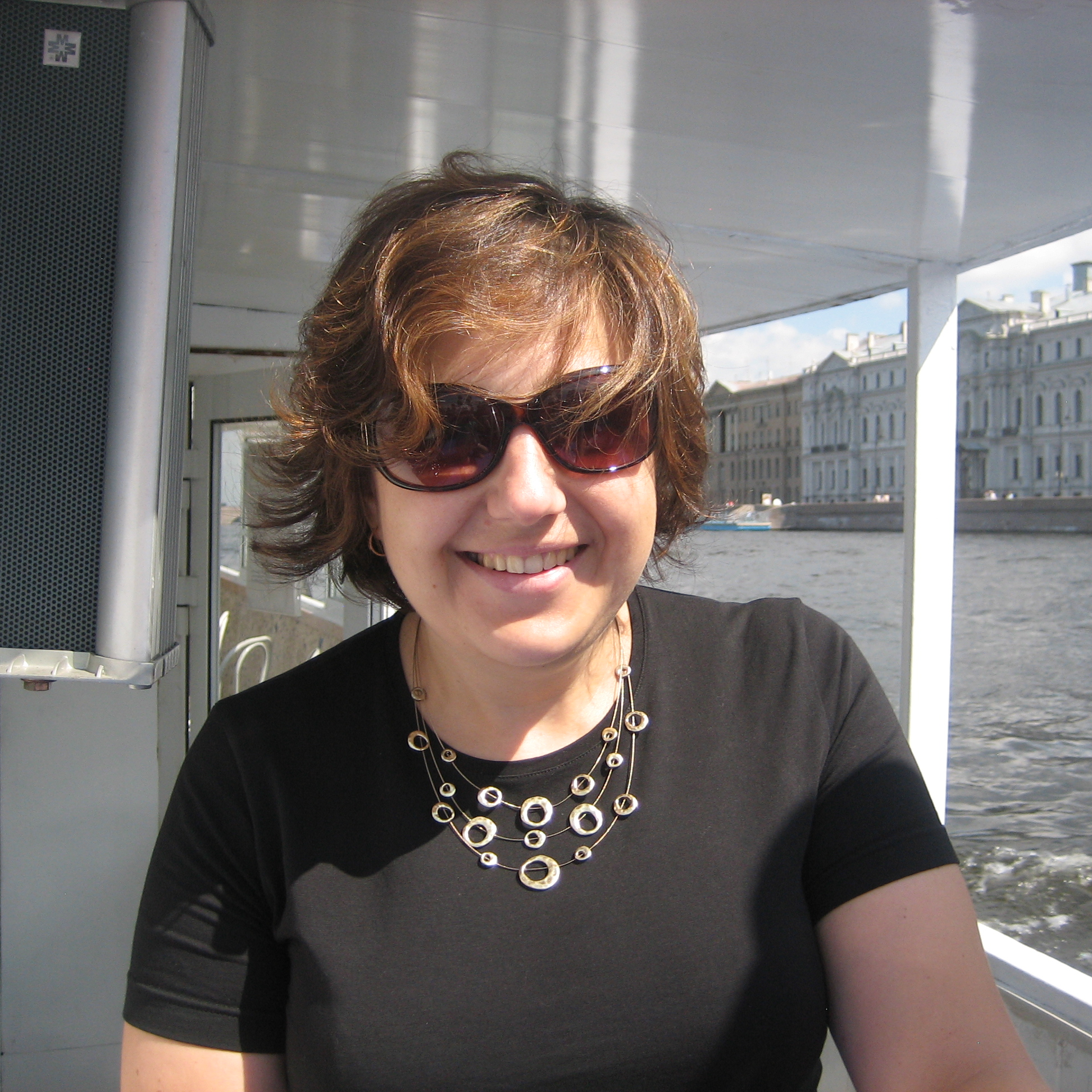Analysis, Probability, Mathematical Physics
Advanced school for young researchers
November 29 – December 4, 2020
Courses

Eugenia Malinnikova
Stanford University
Many forms of the Uncertainty Principle
Lecture 1: Heisenberg, Hardy, and Beurling
The classical Heisenberg principle shows that a function and its Fourier transform cannot be localized simultaneously. This mathematical formulation is well-known and follows from the fact that two important operators do not commute. In the first lecture, we discuss the special role played by the Gaussian function in the classical uncertainty relations and formulate a surprising result of Bourgain about a basis consisting of almost perfectly localized functions. We also plan to explain Beurling’s and Hardy’s uncertainty principles.
Lecture 2: Benedicks and Logvinenko-Sereda
The celebrated theorem of Bededicks states that there is no function that together with its Fourier transform is supported by a set of finite measure. We discuss quantitative versions of the result, survey some beautiful inequalities of Fedya Nazarov, and prove the Logvinenko-Sereda theorem on supports of the function and its Fourier transform. The last aim is, if time permits, to formulate a simplified version of the recent results of Bourgain and Dyatlov and Dyatlov and Jin, which are named the fractal uncertainty principle.
Lecture 3: Slepian-Pollak-Landau
In a remarkable series of works, Slepian, Pollak, and Landau considered a problem of approximation of a function on a given interval ![]() under the assumption that its frequencies lie in the interval
under the assumption that its frequencies lie in the interval ![]() . In the1960s, they constructed a basis of prolate spheroidal functions, which has a number of fascinating properties. The aim of this lecture is to present their main result, the
. In the1960s, they constructed a basis of prolate spheroidal functions, which has a number of fascinating properties. The aim of this lecture is to present their main result, the ![]() theorem, and review some further developments on the subject.
theorem, and review some further developments on the subject.
Lecture 4: Comments and problems solution

Ilya Kachkovskiy
Michigan State University
Localization for quasiperiodic operators with monotone potentials.
Lecture 1: Overview of one-dimensional methods for ergodic and quasiperiodic operators
In this lecture, we will introduce basic concepts of general spectral theory (the spectral theorem), sufficient conditions for Anderson localization (Schnol-type theorems), and elements of spectral theory of ergodic operators (Lyapunov exponents, integrated density of states, Thouless formula, Kotani theory).
Lecture 2: Large deviation techniques for one-dimensional monotone quasiperiodic operators
In this lecture, we will study the main consequences of monotonicity: estimates for eigenvalue counting functions on boxes and large deviation theorems, both of which are specific for operators with monotone potentials. Afterwards, we will outline the proof of Anderson localization.
Lecture 3: Perturbative methods for multi-dimensional operators with monotone potentials.
The methods for Lectures 1 and 2 are specific for the one-dimensional case. In this lecture, we will discuss several approaches to multi-dimensional problems, based on KAM-type arguments (following Bellissard–Lima–Scoppola) and on direct analysis of Rayleigh–Schrodinger perturbation series. Most of this lecture is independent of Lectures 1 and 2.
Lecture 4: Comments and problems solution

Tatiana Nagnibeda
Université de Genève,
St. Petersburg State University
Probability on graphs and groups
Starting with the work of John von Neumann on the Banach-Tarski Paradox, many interesting connections have emerged between the study of infinite (in these lectures, finitely generated) groups and their actions on one hand and probability theory, measure theory and functional analysis on the other hand. In the minicourse we will survey some of these connections, from the more classical ones of expansion and amenability and going on to the more recent study of some models from statistical mechanics on Cayley graphs.
Lecture 1: Spectra of graphs and expanders
We will look at the notion of expansion from geometric and spectral prospectives. We will discuss constructions of infinite families of expanders and the related notions of (non)-amenability and Kazhdan’s Property (T).
Lecture 2: Random walks on groups and graphs
We will start with Kesten’s criterion that characterizes amenable groups in terms of asymptotic behaviour of random walks on their Cayley graphs and will discuss its relevance to the solution of the so-called von Neumann’s Problem. We will also discuss the more recent, ergodic and geometric variations of the problem that, contrary to the classical one, have positive solutions.
Lecture 3: Models of statistical physics on Cayley graphs
We will start with percolation on Cayley graphs and discuss its relation to amenability and other asymptotic properties of the group. Time permitting, we’ll also touch upon some other models, e.g., the uniform spanning forest and the Abelian sandpile model.
Lecture 4: Comments and problems solution
Registration
The registration is closed.
Program
November 30
- 16.50 – 17.00 Connection to the school’s zoom and a greeting word from organizers
- 17.00 – 17.45 Tatiana Nagnibeda, Probability on graphs and groups
- 17.55 – 18.40 Eugenia Malinnikova, Many forms of the Uncertainty Principle
- 18.50 – 19.35 Ilya Kackovskiy, Localization for quasiperiodic operators with monotone potentials
December 1
- 17.00 – 17.45 Tatiana Nagnibeda, Probability on graphs and groups
- 17.55 – 18.40 Eugenia Malinnikova, Many forms of the Uncertainty Principle
- 18.50 – 19.35 Ilya Kackovskiy, Localization for quasiperiodic operators with monotone potentials
December 2
- 17.00 – 17.45 Tatiana Nagnibeda, Probability on graphs and groups
- 17.55 – 18.40 Eugenia Malinnikova, Many forms of the Uncertainty Principle
- 18.50 – 19.35 Ilya Kackovskiy, Localization for quasiperiodic operators with monotone potentials
December 3
- 17.00-17.25 Stefano Decio, Zeroes of sums of eigenfunctions
- 17.30-17.55 Georgii Veprev, Non-existence of a universal zero entropy system for non-periodic amenable group actions
- 18.00-18.25 Stine Marie Berge, Three Surface Theorems
- 18.30-18.55 Anthony Gauvan, A Principle of Almost Orthogonality
- 19.00-19.20 Presentation of master and graduate mathematical educational programs of St.Petersburg University
- 19.25-19.50 Haakan Hedenmalm, Fourier uniqueness in even dimensions
December 4 (comments and problems solution)
- 17.00 – 17.45 Tatiana Nagnibeda, Probability on graphs and groups
- 17.55 – 18.40 Eugenia Malinnikova, Many forms of the Uncertainty Principle
- 18.50 – 19.35 Ilya Kackovskiy, Localization for quasiperiodic operators with monotone potentials
Organizers
More about this school on EIMI indico server
Find out list of participants, lecture notes, video of lectures, exercises, schedule in pdf and more here.
